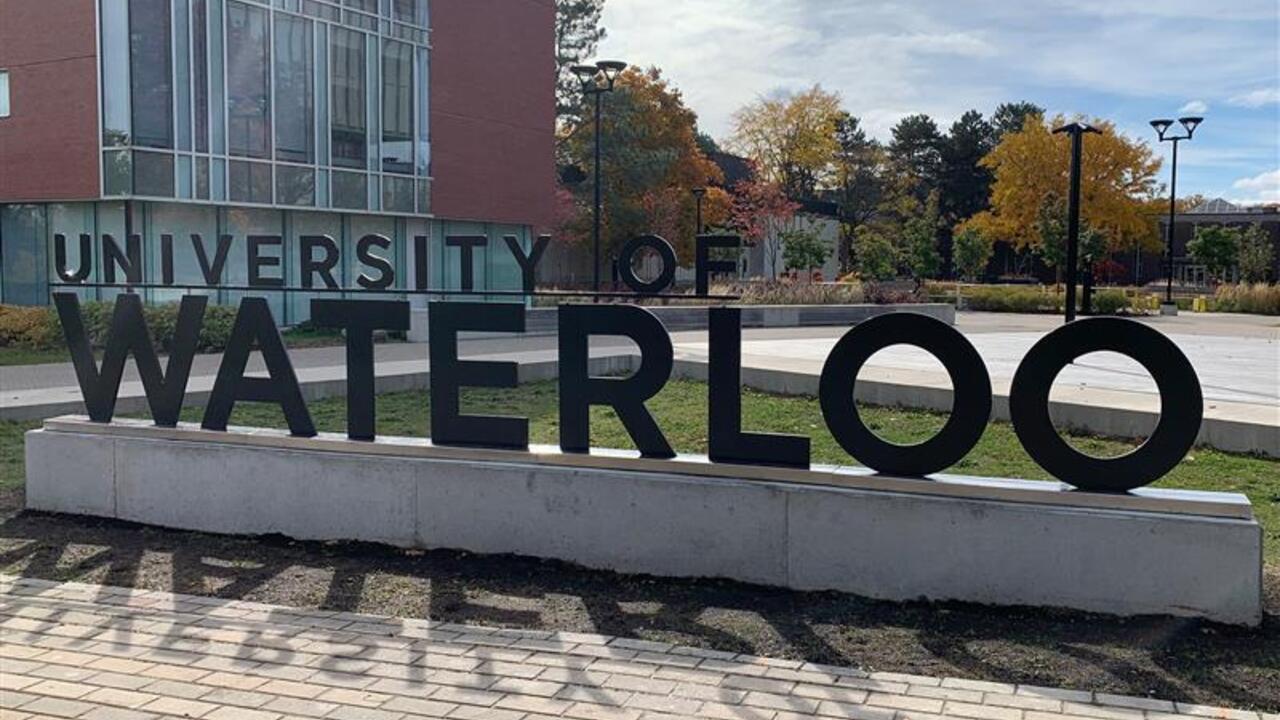
Strategic research projects at Waterloo receive federal funding
A research project is among the innovative initiatives at the University of Waterloo that received major funding.

A research project is among the innovative initiatives at the University of Waterloo that received major funding.
By Media RelationsWATERLOO, Ont. (Monday, Feb. 11, 2013) — A research project that may significantly boost clean biofuel production in Canada is among the innovative initiatives at the University of Waterloo that received major funding recently announced.
The Natural Sciences and Engineering Research Council of Canada (NSERC) announced it is awarding more than $1.9 million through its Strategic Project Grants to four research projects at Waterloo.
“Waterloo has long-standing ties with industry partners,” said Feridun Hamdullahpur, president & vice-chancellor of the University of Waterloo. “These generous strategic grants will do much to further cutting-edge research that ultimately underpins Canada’s economy, society and environment.”
The four strategic research projects from the University of Waterloo included in the funding announcement are:
1. pWeb: A distributed web hosting infrastructure
Research: Multimedia content on the web is growing exponentially, making it difficult for centralized web servers to meet demand. The limitations of centralized hosting can be overcome by distributing websites over peer-to-peer (P2P) networks, but such hosting presents its own challenges. Boutaba and his team are developing a P2P web-hosting framework to solve technical problems inherent in such hosting, making low-cost P2P networks a reality.
Lead researcher: Professor Raouf Boutaba, David R. Cheriton School of Computer Science
Received: $389,814
Industry partner: Bell Canada
2. Economical production of biobutanol through genetic engineering of Clostridium acetobutylicum for effective dissimilation of cheap feedstock
Research: The depletion of resources and environmental impacts from burning fossil fuels have spurred the search for sustainable biofuels. Ethanol is the only current suitable biofuel, but without government subsidies it cannot compete with fossil fuels. Perry Chou and his team are working to change that. They will develop new strains of bacteria and bioprocessing techniques to convert cheap feedstock into n-butanol, a clean, renewable and sustainable biofuel.
Co- principal investigators: Professor C. Perry Chou, Department of Chemical Engineering and Centre for Bioengineering and Biotechnology and Professor Murray Moo-Young, Department of Chemical Engineering
Received: $486,000
Industry partner: Centurion Biofuels
3. Removal of drinking water contaminants with innovative TiO2 nanowire membranes
Research: Many municipalities use membrane systems to treat drinking water, but these filters are expensive to maintain and are fouled easily. Zhou and his team are developing a new way to treat drinking water using TiO2 nanowire membranes activated by visible and ultraviolet light to breakdown a variety of compounds in water. Their nanowire membranes could lead to an energy-efficient water-treatment technology.
Co- principal investigators: Professor Norman Zhou, Department of Mechanical and Mechatronics Engineering, Centre for Advanced Materials Joining and Waterloo Institute for Nanotechnology and Professor Mark Servos, Department of Biology
Received: $491,800
Industrial partner: Trojan Technologies
Municipal partners: Region of Peel, Peterborough Utilities Group
4. Energy and spectrum efficient wireless communication networks
Research: Have you tried to watch a video on your mobile phone or make a video call only to discover your wireless network is too slow or your phone has run out of power? As the number of smart phones with video calling increases, wireless service providers are scrambling to build more cell towers and use more frequencies to meet increasing demand. Zhuang and her team are working to lower power consumption in existing wireless communication networks by improving their efficiency, so more data can be transmitted while using less energy to do so.
Lead researcher: Professor Weihua Zhuang, Department of Electrical and Computer Engineering
Received: $558,000
Industry partner: Unitron, Siradel
Federal partner: Communications Research Centre Canada
NSERC Strategic Project Grants support early-stage projects and aim to encourage collaboration among academic researchers, industry and government partners. The goal of these grants is to increase research and training in areas that could strongly influence Canada’s economy, society or environment in the next 10 years.
In just half a century, the University of Waterloo, located at the heart of Canada’s technology hub, has become one of Canada’s leading comprehensive universities with 35,000 full- and part-time students in undergraduate and graduate programs. Waterloo, as home to the world’s largest post-secondary co-operative education program, embraces its connections to the world and encourages enterprising partnerships in learning, research and discovery. In the next decade, the university is committed to building a better future for Canada and the world by championing innovation and collaboration to create solutions relevant to the needs of today and tomorrow. For more information about Waterloo, please visit www.uwaterloo.ca
–30–
Pamela Smyth
Media Relations Officer
Communications & Public Affairs
University of Waterloo
(519) 888-4777
psmyth@uwaterloo.ca
www.uwaterloo.ca/news

Read more
Waterloo co-op student applies engineering and tech skills at Caivan to support purpose-built housing and build land-development expertise

Read more
Alum and founder Marc Lafleur shares how his entrepreneurship playbook has changed since selling his first company

Read more
How Doug Kavanagh’s software engineering degree laid the foundation for a thriving career in patient care
The University of Waterloo acknowledges that much of our work takes place on the traditional territory of the Neutral, Anishinaabeg, and Haudenosaunee peoples. Our main campus is situated on the Haldimand Tract, the land granted to the Six Nations that includes six miles on each side of the Grand River. Our active work toward reconciliation takes place across our campuses through research, learning, teaching, and community building, and is co-ordinated within the Office of Indigenous Relations.